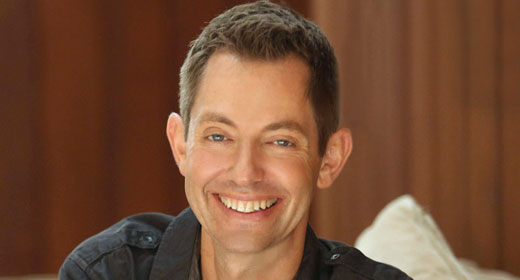This year marks the fiftieth anniversary of the passing of the founder of the Theosophical Society, Helena Petrovna Blavatsky, in London,

May 8, 1891, and Theosophists throughout the world are commemorating the event that brought to a close her eventful and turbulent life.
“There is no Religion Higher than Truth “
The dominant overtone of her life and work was a plea for brotherhood, charity, mutual understanding, and good-will among men, not merely a sentimental union, but an understanding of the basic law of life — universal brotherhood as a fact in nature — which she endeavored to inculcate by teaching technical Theosophy, again giving to mankind the long-hidden spiritual and literary treasures of the ancient East, the original fount of ancient wisdom from which the great religious founders and metaphysical philosophers of every age have drawn their inspiration. She claimed the teachings not as her own, but as the oldest known to mankind which she had derived from certain adepts of the Trans-Himalayan School whom she had personally met and studied under while in the Orient, and at whose instigation she was sent to America to form “a nucleus of universal brotherhood,” the Theosophical Society, a mission which she inaugurated in 1875 in New York City. Considering the broad scope and depth of her teachings regarding religion, science and philosophy, probably the greatest compliment her critics paid her was the charge that she had “invented” them. Her crowning literary achievement, The Secret Doctrine, completed a short time before her death, has become increasingly popular with the passing years as a mine of information to students of Oriental philosophy and occult science. Dr. Thaddeus P. Hyatt of Stamford, an old student of The Secret Doctrine, recently compiled a bibliography of that work in which he revealed that Madame Blavatsky referred to or quoted from more than 700 authors on over 90 subjects. This included many branches of science, many philosophers, and all the great religions known to the world today.
After a lapse of half a century it is possible to judge with some degree of fairness the effect of her teachings upon occidental thought. It is no exaggeration to say that perhaps no other single individual contributed more to breaking the materialistic and dogmatic concepts of the scientific and religious thought of that century. She frankly stated that it was her aim to “break the molds of mind,” and that it was nobler to think than to merely believe and live in an air-tight mental closet of crystalized opinions. Like all others who have challenged the established beliefs and dogmas of any day and age, she aroused the enmity of fixed and static minds in both religion and science, but she attracted the most thoughtful and imaginative minds of her time. The scientific thought of her day was dominated by the Darwinian theory which was the direct offspring of the philosophy of Nietzsche and his theory of the “survival of the fittest,” a materialistic doctrine which denied the spiritual aspect of man and nature, the logical conclusion of which can be seen in Europe today. It was a “dog eat dog” concept of life, the keynote of our present age into which a strange Russian woman attempted to introduce a breath of spiritual sanity.
Madame Blavatsky anticipated the present world crisis when in the early eighties she wrote: “Theosophy is Altruism, and we cannot repeat it too often. It is brotherly love, mutual help, unswerving devotion to Truth. If once men do but realise that in these alone can true happiness be found, and never in wealth, possessions, or any selfish gratification, then the dark clouds will roll away, and a new humanity will be born upon earth. Then, the Golden Age will be there, indeed. But if not, then the storm will burst, and our boasted western civilization and enlightenment will sink in such a sea of horror that its parallel History has never yet recorded.” [Lucifer, Vol. IV, May, 1889]
“We are at the end of a cycle — geological and other — and at the beginning of another. Cataclysm is to follow cataclysm. . . . We are not emulous of the prophet’s honors; but still, let this stand as a prophecy.” [The Theosophist, Vol. V, November, 1883]
Contrary to popular belief, Madame Blavatsky did not attempt to foist a “new religion” upon mankind, already overburdened with multitudinous sects and creeds, but sought to show the basic and fundamental truths — the Theosophy — underlying all religions which had become encrusted with man-made dogmas and creeds with the passing of time and the frailty of human understanding. In her introduction to The Secret Doctrine she stated: “The Esoteric philosophy is alone calculated to withstand, in this age of crass and illogical materialism, the repeated attacks on all and everything man holds most dear and sacred, in his inner spiritual life. The true philosopher, the student of esoteric wisdom, entirely loses sight of personalities, dogmatic beliefs and special religions. Moreover, esoteric philosophy reconciles all religions, strips everyone of its outward, human garments, and shows the root of each to be identical with that of every other great religion. It proves the necessity of an absolute divine principle in nature. It denies deity no more than it does the sun. Esoteric philosophy has never rejected God in nature, nor deity as the absolute and abstract ens. It only refuses to accept any of the gods of the so-called monotheistic religions, gods created by man in his own image and likeness, a blasphemous and sorry caricature of the Ever Unknowable.”
An editorial published in the N. Y. Tribune, May 10, 1891, at the time of her passing, stated among other things: “Few women in our time have been more persistently misrepresented, slandered, and defamed, than Madame Blavatsky, but though slander and ignorance did their worst upon her, there are abundant indications that her life-work will vindicate itself, that it will endure, and that it will operate for good. For nearly 20 years she has devoted herself to the dissemination of doctrines the fundamental principles of which are of the loftiest ethical character. However Utopian may appear to some minds an attempt in the nineteenth century to break down the barriers of race, nationality, caste and class prejudice, and to inculcate that spirit of brotherly love which the greatest of all teachers enjoined in the first century, the nobility of the aim can only be impeached by those who repudiate Christianity. Madame Blavatsky held that the regeneration of mankind must be based upon the development of altruism. In this she was at one with the greatest thinkers, not alone of the present day, but of all time. — This alone would entitle her teachings to the candid and serious consideration of all who respect the influences that make for righteousness. — No one in the present generation has done more toward reopening the long-sealed treasures of Eastern thought, wisdom and philosophy. — Her steps often led, indeed, where only a few initiates could follow, but the tone and tendency of all her writings were healthful, bracing and stimulating. The work of Madame Blavatsky has already borne fruit, and is destined, apparently, to produce still more marked and salutary effects in the future. She herself has finished the course, and after a strenuous life she rests. But her personal influence is not necessary to the continuance of the great work to which she put her hand. That will go on with the impulse it has received and some day, if not at once, the loftiness and purity of her aims, the wisdom and scope of her teachings, will be recognized more fully, and her memory will be accorded the honor to which it is justly entitled.









































